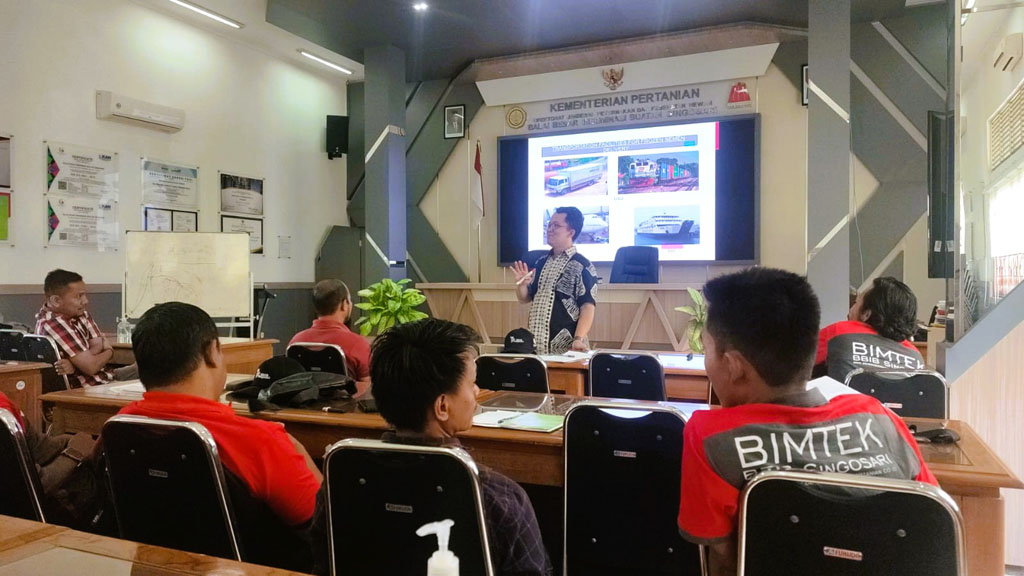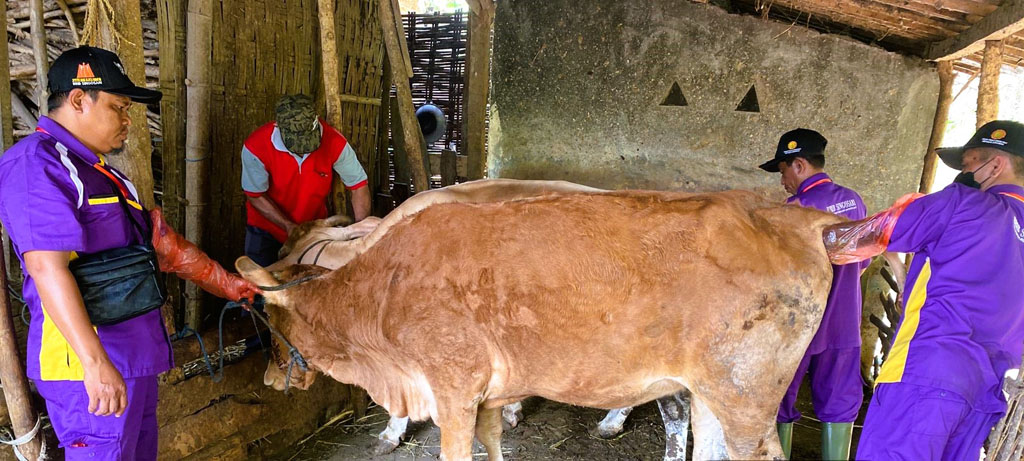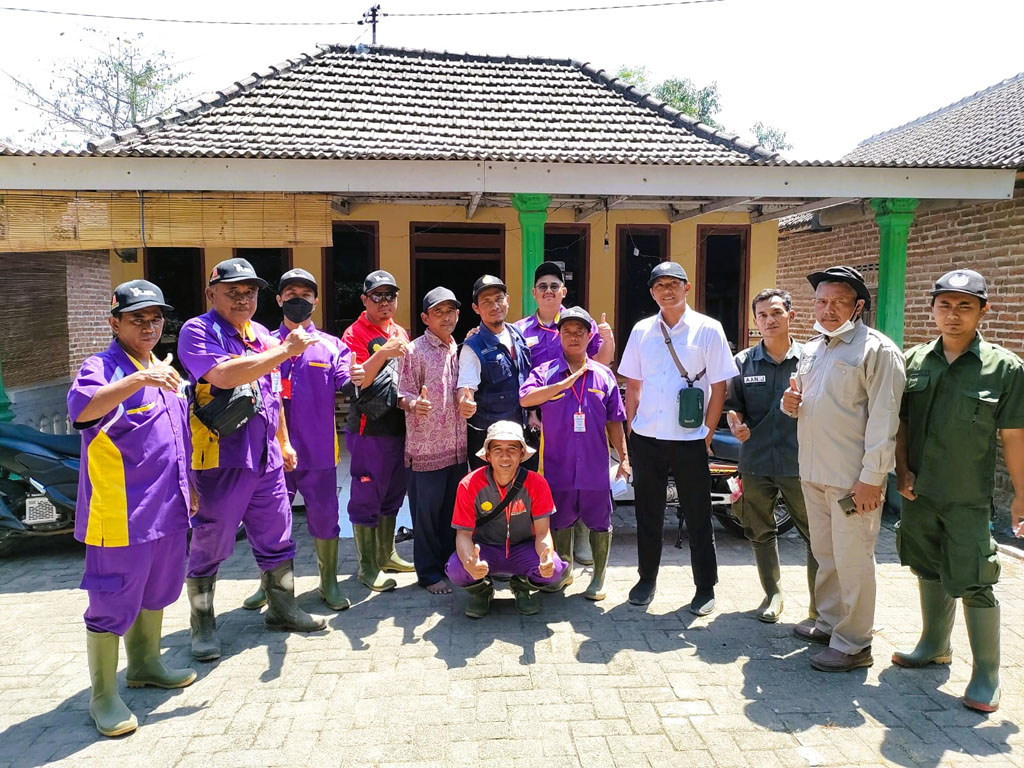Technical Guidance on Pregnancy Checks in Efforts to Increase Dairy Cow Productivity

Early pregnancy checks in livestock are important for reproductive management as viewed from an economic perspective. Knowing livestock pregnancy is crucial in reproductive management because it affects various aspects, especially economic aspects. The choice of method depends on the species, gestational age, cost, accuracy, and speed of diagnosis. In general, early pregnancy diagnosis is necessary. Identifying livestock that is not pregnant immediately after mating (Artificial Insemination) is needed to reduce loss production time due to infertility with proper handling. As a consideration, if livestock must be sold or culled (reducing the number of livestock in the cowshed) to reduce costs in breeding programs that use expensive hormonal techniques, and help economical livestock management.

It is important for cooperatives to have members who have expertise and are certified to carry out pregnancy checks so they can help farmers carry out reproductive health checks and carry out Artificial Insemination. Pregnancy checks also to identify cows that are not pregnant and artificial insemination is immediately to maintain the reproductive health, lust, and milk production cycle. Knowing how important this is, the Local Milk Sourcing (LMS) project facilitates cooperative representatives to take part in Technical Guidance for Pregnancy Checks for two weeks at the Singosari Artificial Insemination Center, Malang Regency.

Pregnancy Checks Technical Guidance is part of the LMS project to address problems and challenges for developing dairy cattle productivity. The hope is that after this technical guidance, new resources will emerge from the cooperative that can help in increasing the healthy and fast population of dairy cows. Therefore, it is important to provide technical guidance in addition to increasing the capacity of cooperatives, as well as an effort to obtain legal certificates to carry out Pregnancy Checks so that breeders and cooperatives have legal resources for the services provided by cooperatives to breeders.

